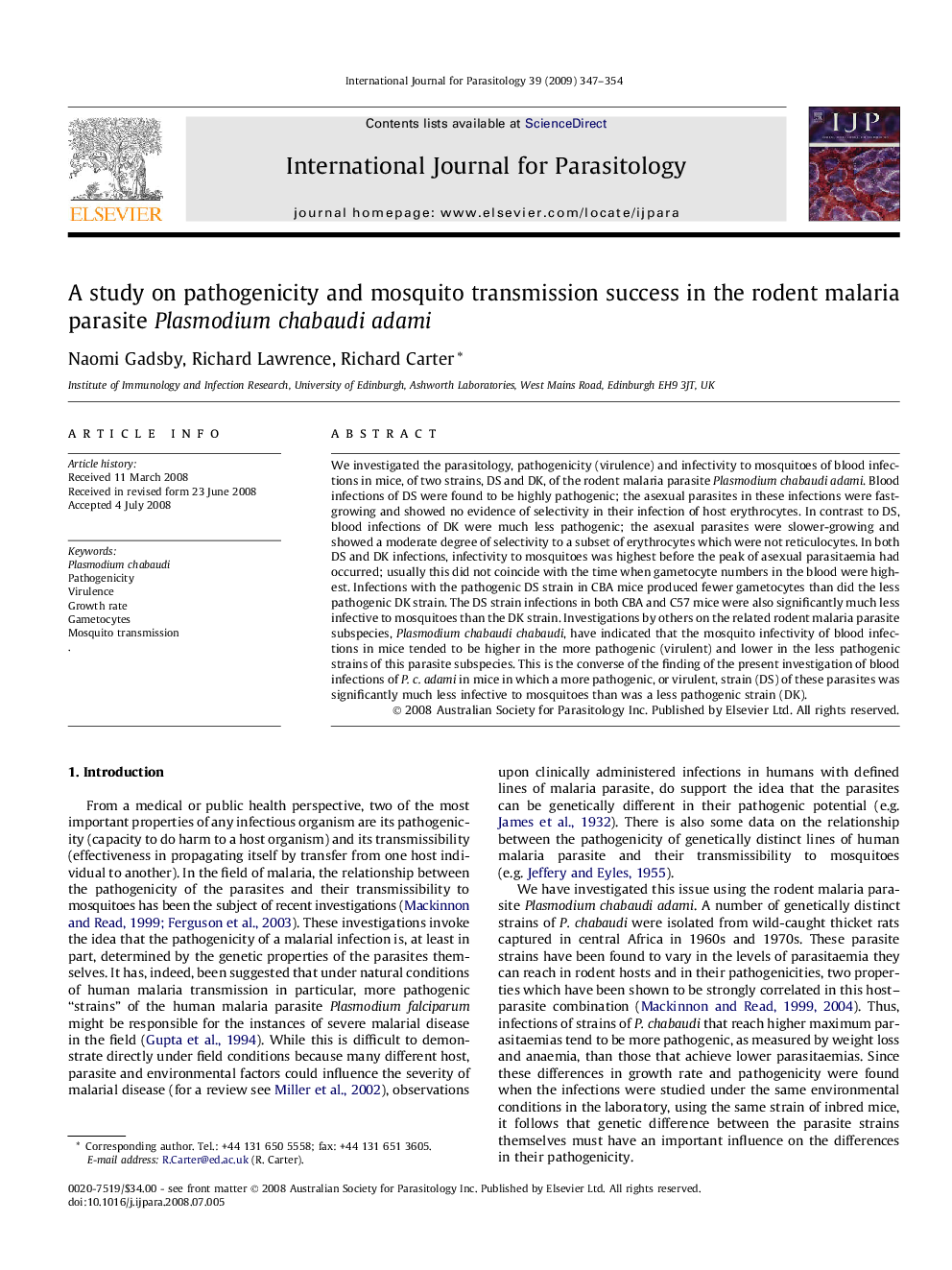| Article ID | Journal | Published Year | Pages | File Type |
|---|---|---|---|---|
| 2436631 | International Journal for Parasitology | 2009 | 8 Pages |
Abstract
We investigated the parasitology, pathogenicity (virulence) and infectivity to mosquitoes of blood infections in mice, of two strains, DS and DK, of the rodent malaria parasite Plasmodium chabaudi adami. Blood infections of DS were found to be highly pathogenic; the asexual parasites in these infections were fast-growing and showed no evidence of selectivity in their infection of host erythrocytes. In contrast to DS, blood infections of DK were much less pathogenic; the asexual parasites were slower-growing and showed a moderate degree of selectivity to a subset of erythrocytes which were not reticulocytes. In both DS and DK infections, infectivity to mosquitoes was highest before the peak of asexual parasitaemia had occurred; usually this did not coincide with the time when gametocyte numbers in the blood were highest. Infections with the pathogenic DS strain in CBA mice produced fewer gametocytes than did the less pathogenic DK strain. The DS strain infections in both CBA and C57 mice were also significantly much less infective to mosquitoes than the DK strain. Investigations by others on the related rodent malaria parasite subspecies, Plasmodium chabaudi chabaudi, have indicated that the mosquito infectivity of blood infections in mice tended to be higher in the more pathogenic (virulent) and lower in the less pathogenic strains of this parasite subspecies. This is the converse of the finding of the present investigation of blood infections of P. c. adami in mice in which a more pathogenic, or virulent, strain (DS) of these parasites was significantly much less infective to mosquitoes than was a less pathogenic strain (DK).
Related Topics
Life Sciences
Immunology and Microbiology
Parasitology
Authors
Naomi Gadsby, Richard Lawrence, Richard Carter,
